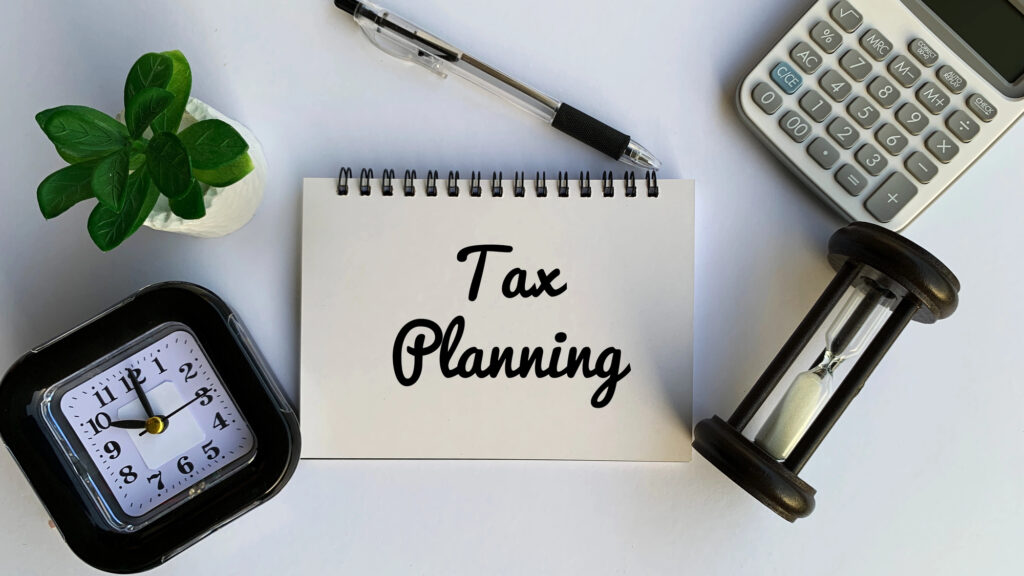
Year-End Tax Planning for Busy CEOs
Posted on November 11, 2025 by B2B CFO
Strategic Moves to Maximize 2025 Savings
As 2025 winds down, even the busiest CEOs and business leaders have a golden opportunity to pause and sharpen their financial edge before the year closes. Year-end tax planning goes beyond a box to check. It is a great strategy to boost company cash flow, reduce potential tax liabilities, and set the stage for a perhaps a more profitable 2026. With game-changing updates from the One Big Beautiful Bill Act (OBBBA), shifting tariff rules, and fresh chances to claim valuable deductions and credits, now’s the time to connect with your tax advisor and make smart, proactive moves.
Here are some important updates to consider:
OBBBA: A New Era of Tax Strategy
The One Big Beautiful Bill Act (OBBBA) earlier this year introduced sweeping tax reforms in 2025, offering significant opportunities for businesses and high earners to reduce liabilities and plan more strategically. Here’s a breakdown of the most impactful provisions you should know:
- Permanent bonus depreciation: Businesses can now deduct 100% of qualified property costs immediately, improving cash flow and reducing taxable income.
- Expanded IRC limits: Doubling the deduction cap allows for more aggressive equipment and software investments.
- Modified SALT cap: The new $40,000 ceiling offers planning flexibility for state and local tax deductions.
- Enhanced QBI deductions: Pass-through entities can benefit from broader eligibility and increased thresholds.
Think of it as a financial tune-up: modeling a few scenarios now could reveal savings you didn’t expect. Maybe this is a time for your business to consider accelerating deductions, deferring income, or rethinking how your business is structured under the new OBBBA rules. A deep dive into how the new law is reshaping business tax laws today can pay off in a big way tomorrow. Take time now before year end to ensure you’re truly taking advantage of the benefits this new Act can bring to your business.
Managing Tariff Impacts on Your Tax Position
Tariff rules are evolving, and if your company trades internationally, it’s important to know what sort of impacts can impact your tax burden. Here are a few key areas to keep in mind:
- Inventory timing: Consider timing your purchases to avoid tariff increases or take advantage of short-term breaks.
- Make the most of your assets: By reclassifying imported items, you can take advantage of better depreciation benefits and potentially lower your duty costs, which could be a smart move that adds up fast.
- Keep pricing in sync: If your business operates across borders, it’s important to make sure your intercompany transactions reflect current market conditions and stay aligned with global tax rules.
These strategies might sound complex, but with the right guidance, these adjustments can lead to meaningful savings and a smoother path into the new year.
Smart, Simple Moves to Boost Your Year-End Tax Strategy
With all the recent changes in tax law, it’s easy to feel overwhelmed. Some of the most effective strategies are still the simplest. Here are a few practical steps that can make a real difference to your company’s tax planning before the year wraps:
- Get ahead on expenses: Prepaying things like rent, bonuses, or vendor contracts can help you lock in deductions for 2025 and improve your cash flow.
- Push income forward: If it makes sense for your business, consider delaying invoicing or revenue recognition to reduce this year’s taxable income.
- Max out retirement contributions: It’s a win-win to support your employees and your future while lowering your tax bill. Contributions to qualified retirement plans like a 401(k) or SEP IRA are typically tax-deductible, reducing your taxable income for the year. Retirement accounts grow tax-deferred, meaning you won’t pay taxes on gains until you withdraw. This allows your investments to compound more efficiently over time, building a stronger financial future. Lastly, by offering generous retirement contributions can boost employee retention.
- Be proactive about accurate and timely financial records: Accurate books help you capture every possible deduction, credit, and write-off, which can significantly lower your tax bill. They also reduce the risk of costly mistakes, keeping you compliant and audit-ready. With clean records, your tax advisor can quickly run projections and model strategies, helping you make sharper, faster decisions. You’ll gain clearer visibility into your cash flow, making it easier to manage spending and investments. Plus, organized financials lay the groundwork for more accurate business forecasting, budgeting, how to potentially fund growth in the year ahead.
When you combine these year-end tax planning tactics with the new opportunities under OBBBA, you can help your business build a stronger, more resilient financial foundation for the year ahead. Our Partners are here to help your company excel and prosper, no matter if you’re wanting to improve cash flow, secure bank financing, grow profitably, or increase overall business value. We specialize in strategic planning and preparing businesses for successful transitions, including sale-readiness. And we collaborate with many of the nation’s top CPAs and tax advisors to deliver expert guidance tailored to your goals. As the year is winding down, use this information to meet with your tax advisor to make sure you’re not leaving money on the table!


